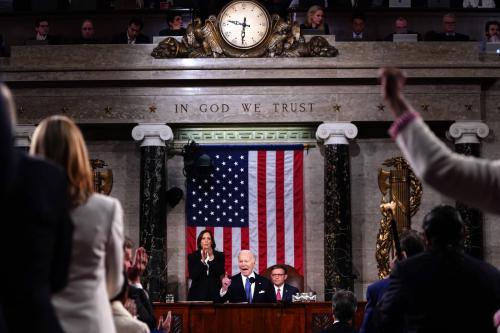The clock is ticking down to Taiwan’s presidential and legislative elections, which could produce a shake-up in cross-Strait relations. The balloting will take place this Saturday (Taiwan time), and the results will be at least partially available when dawn breaks in the United States the same day. The new president will enter office on May 20, and the new session of the Legislative Yuan will open on February 5.
The contenders—primarily the Kuomintang (KMT) and Democratic Progressive Party (DPP)—have done all they can to raise money and fine-tune their party organizations. The presidential and legislative candidates have each worked to shape how voters think about the major issues. The elephant issue in the room, Taiwan’s relationship with China, is a point on which the KMT and DPP have deep disagreements. Each party has sought to energize actual and potential supporters through rallies and the media. Now the principal task is encouraging those supporters to actually go to the polls on Election Day. The turnout rate and which party benefits could have a major impact on the outcome, particularly in the legislative races. If university students return to Taiwan to vote in large numbers, for instance (Taiwan does not allow absentee voting), it will likely benefit the DPP.
Will the election reflect a shift in basic Taiwan sentiment towards China, from modestly positive to more negative? Could it become what specialists on American politics call a “realignment election” (e.g. the Republican victory in 1980)? We’ll have to wait for exit polls to know for sure.
Keep calm and carry on
Back in December, I published a paper on the Taiwan election and its implications for Taiwan’s relations with both China and the United States, as well as for U.S.-China relations. Only as the transition proceeds and the new president takes office will we gain a better sense of the next administration’s policies and of how Beijing and Washington will respond to the new reality.
Here are the basic contours of the current situation on the ground in Taiwan:
- Tsai Ing-wen, the presidential candidate for the DPP, continues to enjoy a comfortable lead even though polls generally suggest that the gap between her and her main competitors—Eric Chu (KMT) and James Soong (People First Party)—is narrowing. The fact that Chu and Soong are competing for many of the same voters only eases Tsai’s path to victory, and her campaign has been free of any major errors.
- More uncertain are the legislative races, as well as what the new balance of political power in the Legislative Yuan could spell for Tsai’s freedom of action (should she win). It will be greatest if her DPP wins an outright majority, less so if it must forge a formal or ad hoc coalition with minor parties, and even less if the KMT or a KMT-dominated coalition maintains control.
- China continues to insist that President Tsai reassure Beijing about her policy intentions if she is to avoid a deterioration in the status quo across the Taiwan Strait. But because Tsai has had a comfortable lead, she has seen no electoral reason to provide the degree of reassurance Beijing seeks, at least so far.
- It’s not clear whether China’s fairly hardline rhetorical position is its true policy bottom line. If it is, then the prospects for a downturn in cross-Strait relations are likely. If there is some “give” in Beijing’s position, then a process of mutual accommodation or conflict management between it and Taipei is more likely. China’s response to the election results will be a critical variable going forward, one that will help shape what Washington does.
I was working in the U.S. government on Taiwan issues in 2000, the last time that the DPP candidate (Chen Shui-bian) won the presidency. That time, the electoral result was not certain until just before voters cast their ballots. The DPP itself was surprised that it had won, and understood that it was not entirely ready to govern. As a result, both Beijing and Washington had to scramble to adjust to the new reality. Washington was better prepared than Beijing, but my colleagues and I were still quite uncertain how Taiwan-China relations would evolve. We recognized that we had a role to play in helping reduce the risks of an over-reaction by either Beijing or Taipei. This time, the uncertainties are less and Washington’s leverage is less, but the need for the Obama administration to sustain policy attention and to execute skillful diplomacy remains.



Commentary
Taiwan goes to the polls—what could it mean for the U.S. and China?
January 11, 2016